The State Theatre of Ithaca, located on W State Street, is a historic, 1600-seat entertainment venue with immense history. The State Theatre is often recognized for the preservation of its unique architecture, classified as having “collegiate gothic” architectural qualities. In 1996, the theater was recognized on the National Register of Historic Places.
Doug Levine ’04, the current State Theatre executive director, graduated from Ithaca College with both a bachelor’s and master’s degree in business. Levine is passionate about the performance industry and takes pride in the theater’s contribution to the live performance industry in Tompkins County.
Staff writer Georgie Gassaro spoke with Levine to examine the evolution of the theater’s offerings, how the theater fits into the entertainment culture of Ithaca, as well as elements of its standout architectural makeup.
This interview has been edited for length and clarity.
Georgie Gassaro: What is your role with the State Theatre and how did you begin your involvement?
Doug Levine: I have been the executive director of the State Theatre since 2009, which is kind of crazy. At the time, the theater was struggling quite a bit, and I just knew how important it was to Downtown Ithaca. I really wanted to be a part of its renaissance, and I have been. There were a lot of challenges in the beginning, and there are still challenges to this day, but we’ve gotten through a lot of things where we are definitely more stabilized now. We put on between 75 and 100 events a year now. I love the arts and I love entertainment. I’ve always been a huge music fan, so to be a part of that growth is awesome and to have such an impact on the economy is huge. People don’t realize that not only are people from Ithaca buying tickets to shows, but we have a massive draw for people that come from out of town for shows. People are not only spending money on a ticket here, but they’re staying in a hotel or an Airbnb and getting a bite at a local restaurant, or getting a beer afterward. All of that helps the economy, and I’m proud to be a part of that as well.
GG: What about it being in Ithaca makes this theater successful?
DL: We are right, dead center in the heart of Downtown Ithaca. There are so many people that can just walk here to get to a show, so that is massively important. The theater was built and opened in 1928. Keep in mind, that is before the advent of television and even radio. Back then you didn’t just sit around on television. There is no internet, so this was a main source of entertainment for people. There was this huge theater building boom in the mid ’20s, where a lot of downtowns saw theaters form and come to be very prominent, and the State Theater was a part of it. We opened as a vaudeville house in 1928. But really, for the bulk of our history, we were actually a big movie theater as well, before the Ithaca Mall was built. We have a long storied history for sure.
GG: What kinds of communities attend the theater’s performances?
DL: We definitely attract different types of groups of people for different shows. Some shows are skewed towards college students. Some are skewed towards the “crunchy” or “granola hippie” residents of Ithaca, and some are geared more towards the edgy hipsters. But the one thing we do try to do is be a theater for everyone. We try to offer programming that everyone will like over the course of a season, whether it be comedy, edgy comedy, political comedy, indie music, folk music, even hip hop or metal. We try to kind of offer something for everyone throughout the course of the year.
GG: Could you talk about the different types of performances that the theater hosts and how the space accommodates them?
DL: We’re very busy and always making improvements to the building as well, which is great. The most common performance type by far is music, like rock bands or bands in general. I’d say the second most common is comedy. And the thing about comedy is that we don’t have a lot of competition. Locally, there’s not a lot of other comedians coming to town, but they are coming to us which is great. We do some theatrical performances, but we really leave that to the smaller theaters in town, like the Hanger and the Kitchen. But also, I think Ithaca College has a wonderful theater program, and if the college puts on some great theater, we want people to go up to South Hill and see those shows. Theater shows typically run for seven to 10 days, whereas we are usually doing one-off shows that run one night only.
GG: Are there any unique engineering tricks that facilitate the charm of State Theatre productions?
DL: In terms of our main architecture, I can’t really think of a room this beautiful in town, to be honest, it’s just absolutely gorgeous. Now, what you see when you look from the curtains back, it is not as pretty, but everything is very functional. We have all the means to put on hundreds of different types of shows. We have the technology and the equipment to pull those off, but it’s all behind the curtain. And on the outside, what you see isn’t necessarily what you get. So, you’re looking at all this beautiful architecture and you probably think it’s stone or marble, but it’s all just plaster. It is cool, but it is just not as intricate as one might think. Plaster like this was very, very common in the ’20s. In terms of special tricks, the theater was built as an atmospheric theater. So when the lights go down for a show, you look up on the ceiling and we have the constellations in our ceiling with little light bulbs. There is a metal shield that rotates around each light bulb very slowly, and it creates a twinkling effect. This is not LED technology, this is 1928 technology, and it still works today which is awesome. It does take maintenance, but it’s not very complicated maintenance. We just go up there every two summers and dust things off, and they still work like they did 95 years ago.
GG: What type of performance is the hardest to prepare for in terms of stage architecture and engineering? Why?
DL: For us, the real intricate rock band performances with over 10 members in the group. It takes a lot of equipment, and it’s a lot of sound checking and it’s just a long, long day. On the flip side, comedians are the absolute easiest. All a comedian needs is a stool, a microphone and a Diet Pepsi and they are good to go. We like the comedian days because they are easy days.
GG: What are the most impactful challenges the theater has faced over the last 10 years? What changes have you made as a result?
DL: I mean, we face challenges every single day. With some of those challenges we’ve created solutions for. For example, this theater was built in 1928, way before ADA accessibility. So there are a lot of challenges with getting wheelchairs around and whatnot, but we’ve created ramps, we’ve removed chairs, we’ve removed steps and things like that to combat those challenges. Today, I’d say one of the biggest challenges that’s kind of out of our control is the secondary ticket market. When the less technologically-savvy older generations search “State Theatre tickets” on Google, they’ll just click the first thing they see, and they’ll go and buy tickets, but they don’t realize they’re getting scammed. They pay way more money than they need to for the tickets because of companies like Ticketmaster. Often people will pay $300 or $400 for a ticket, which really should only cost them $40 or $50 bucks from us and our ticket selling platform.
GG: What is your ticket selling process? What is the theater’s relationship with external ticket seller companies like Ticketmaster?
DL: We never use Ticketmaster. We never have, and there’s a reason for that. In a town like Ithaca, it would not go over well. We use a smaller company called Tixr. They do have fees associated, but it’s not nearly as much as Ticketmaster, because we are more in control of the fees and whatnot. This secondary ticketing source handles our online ticketing, and overall, we are pretty happy with them. There are definitely challenges, but we do try to combat reselling and all that stuff, because it just sucks for so many people with so many different [reseller] organizations.
GG: Looking into the future, what have been the most recent goals or projects that the theater has been focusing on?
DL: Just this past January, we completed a project to create a new bar and concession space for selling beer, wine, soda and popcorn. For many years, our bar was literally inside the theater itself. It was at the back of the hall. It was annoying to sell beer and wine in the room that an artist is performing in, so we finally removed it from the theater and created a new space. It was a half a million dollar project, but we completed it, and it’s working out fantastically well. We’re always looking to improve, so that’s the main project on the horizon right now. We’re a 95-year-old building, so obviously things are getting a lot hotter and we generally don’t have summer programming anyway, but even in the spring and the fall, it is getting warmer and warmer. In the next couple of years, I would like to try to figure out a way to get air conditioning in here so we can be more comfortable on those warmer days.


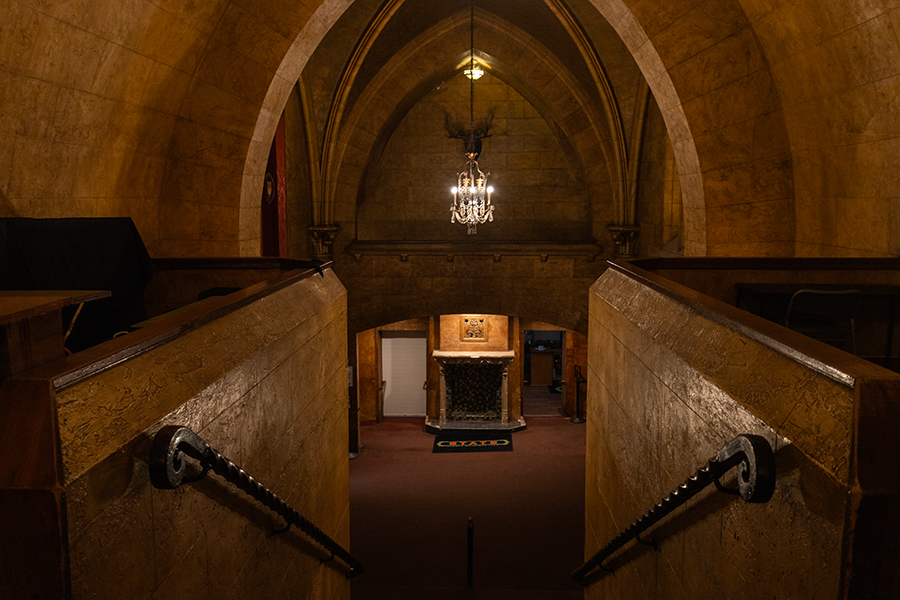

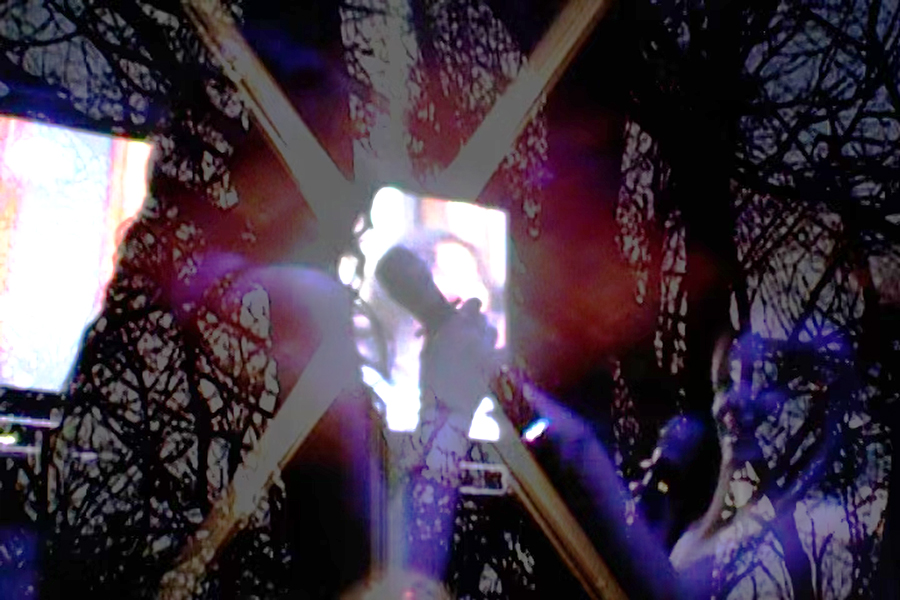
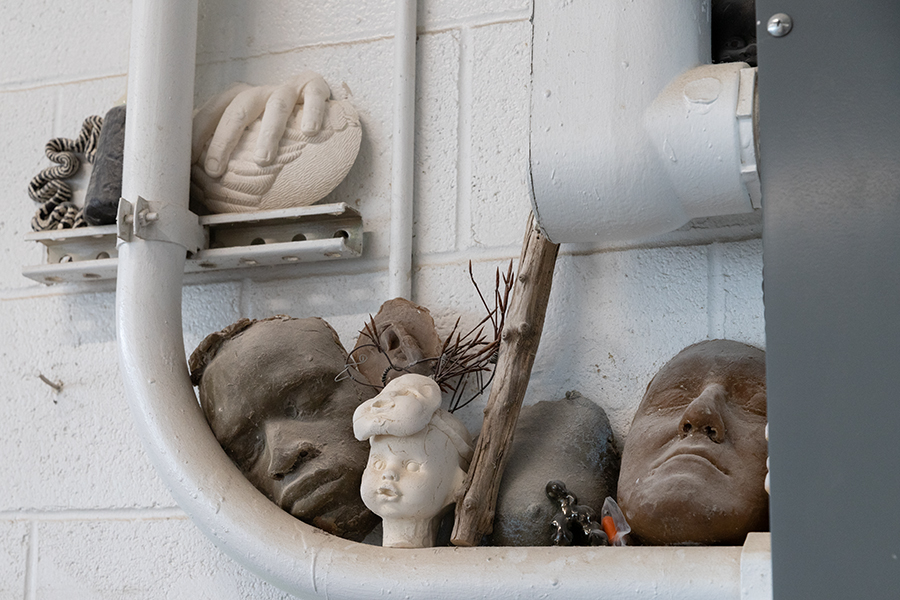
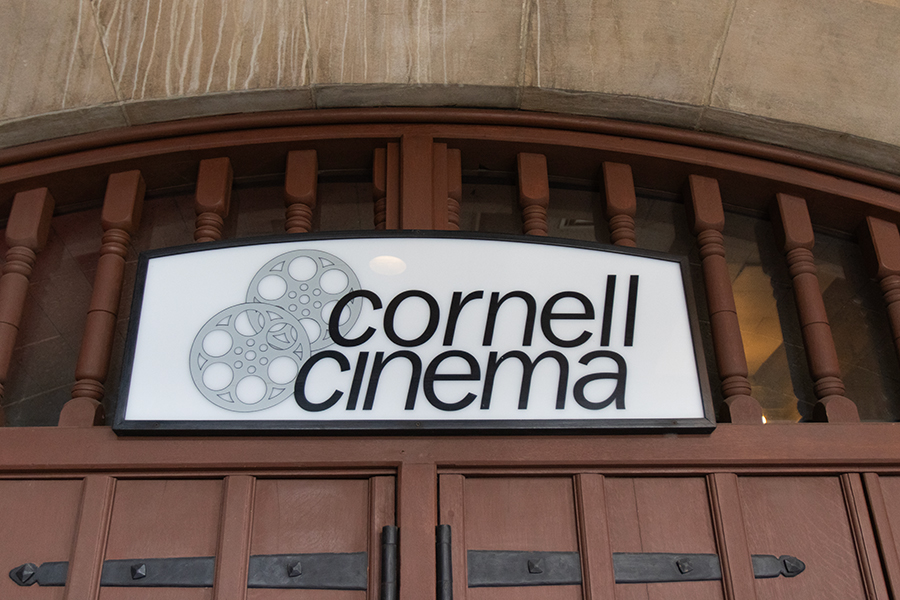
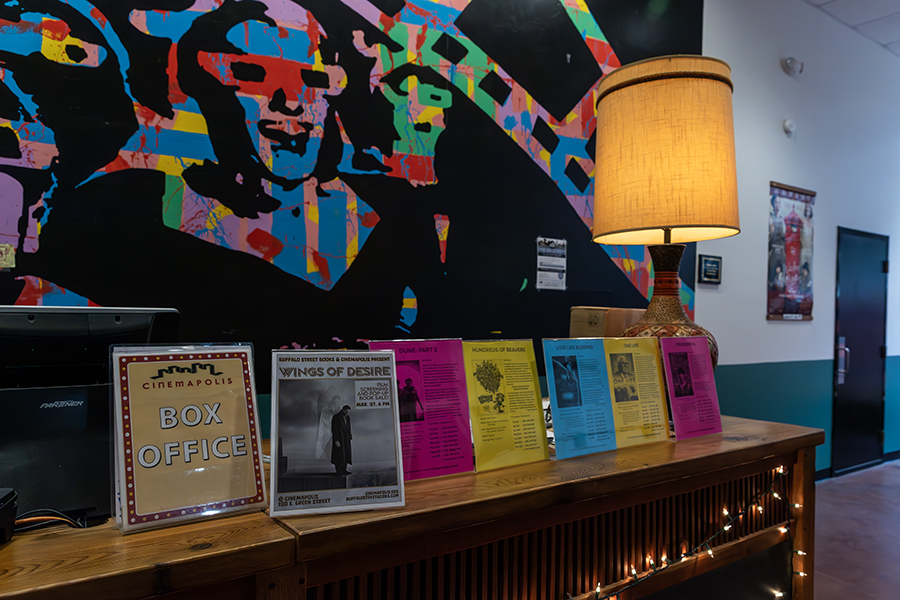













Tom Dimock • Apr 3, 2024 at 8:48 pm
Are there any plans to restore C. Sharpe Minor’s pipe organ? I know you got the console back a while ago, and most of the percussion stuff was still up there the last time I was in the organ lofts.